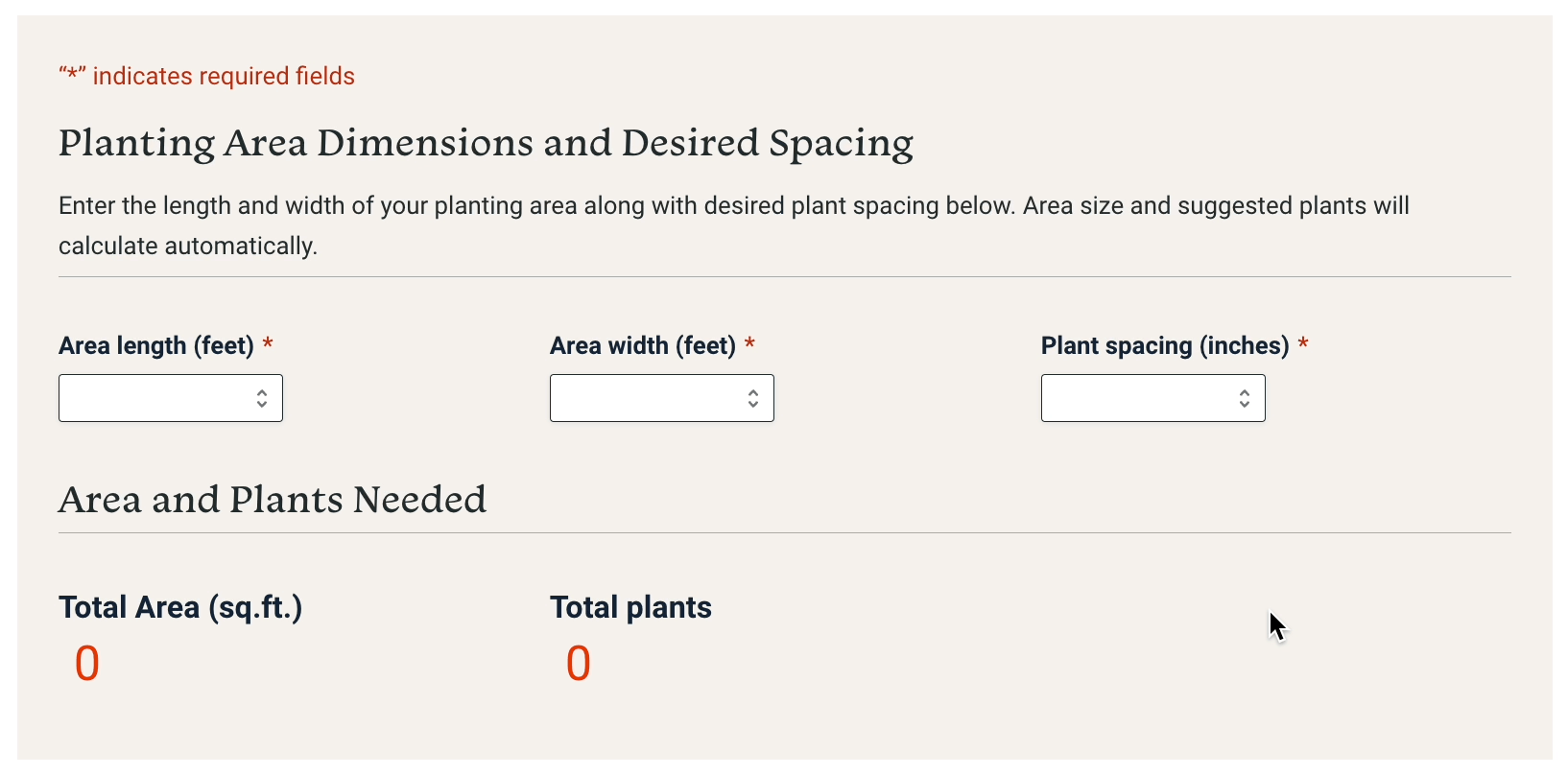Spotlight: MNL’s Plant Calculator 🤝 Rounding by Increments
Jennifer Strumbel’s plant calculator helps make ecological restoration precise. It’s powered by our free Rounding by Increments plugin.

Imagine restoring a landscape that was once rich with life. How many plants would it take to return it to its former glory? With MNL’s Plant Calculator, that restoration is not only possible but precise.
Jennifer Strumbel — a dear customer of ours — has been building with us wizards for years. She built MNL‘s Plant Calculator, and makes a neat use case for Rounding by Increments (and GP Advanced Calulations) to make things gel under the hood.
How it works
MNL’s customers set out to purchase plants to restore a natural landscape — and the right number of plants is key to a successful restoration. How many should be purchased? Overcrowding can strain the soil, while under-planting leaves gaps in the ecosystem.
Here’s a practical example: let’s say a small piece of land is 10 feet wide and 10 feet in length. Each product MNL provides comes with its own optimal spacing — in this case, let’s say that’s 12 inches. After Total Area is calculated, it calculates that 102 plants in total can thrive in this amount of space.

There are a few moving pieces. First, Jennifer uses calculations on the Total Area and Total Plants fields that come with standard Gravity Forms functionality, but leveraged GP Advanced Calculations’ formula editor to simplify the editing experience.
- Total Area (sq. ft.)
({Length in feet:1}*{Width in feet:3})
- Total Plants
(({Length in feet:1}*{Width in feet:3})*144)/({Distance between in inches:4}*{Distance between in inches:4})
Our favorite part, though, is her neat use case for rounding. Because MNL products are primarily sold in packs of 6, Jennifer wanted to be sure that the Total Plants calculates in multiples of 6. She used our free Rounding by Increments plugin with the Total Plants field to make it happen.
The Rounding by Increments plugin allows you to round a number (up or down) to the nearest increment of n. If n were 25, 26 would be rounded to 25, whereas 49 would be rounded to 50.
That’s it 🌱
If the process of ecological restoration seems daunting, MNL’s tool provides a speedy head start. Through a simple calculator that provides the optimal plant spacing, customers ensure they fill space properly and leave room for plants to spread naturally over time. This approach also restores the landscape without the need for constant replanting, allowing the environment to regenerate and flourish on its own.
Thank you, Jennifer, for sharing your build with us! Jennifer shared a few words with us on her experience.
As always, Gravity Wiz was quick to respond and guide on the journey of coming up with something new and specific for my clients.
Building something similar? Let us know below. 👇




